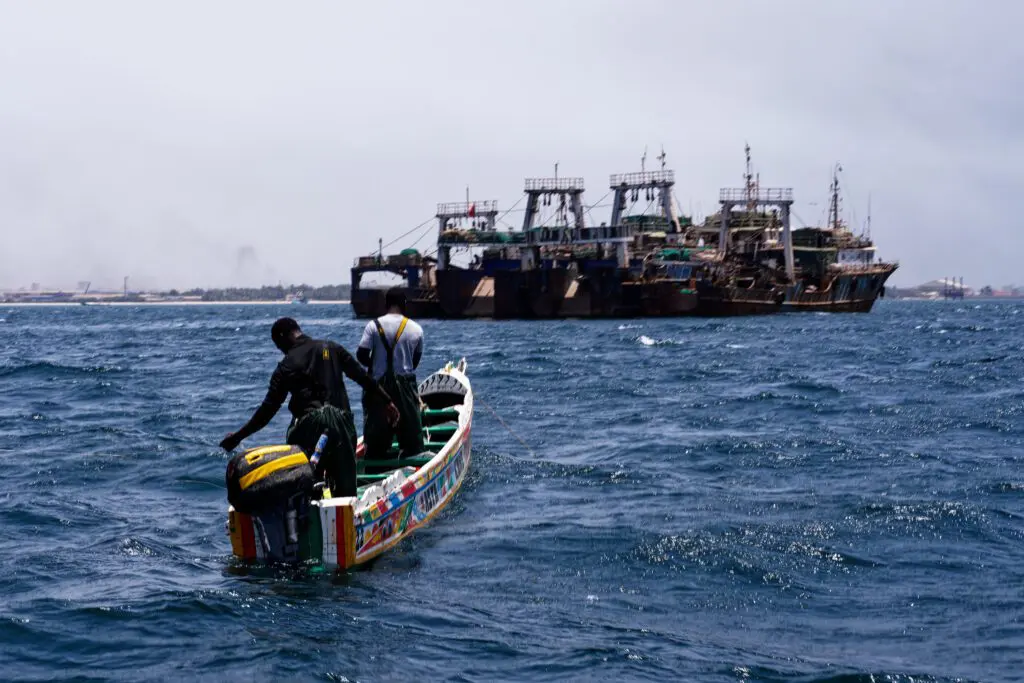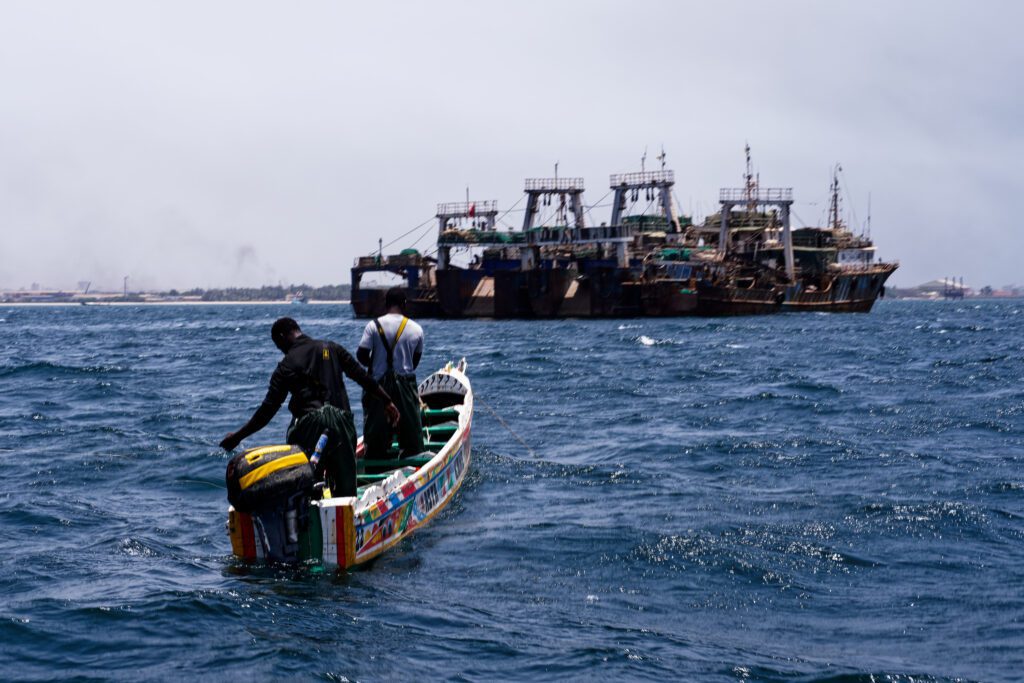On the 12th of October, Transform Bottom Trawling Coalition representatives attended the launch event for the Environmental Justice Foundation’s new investigative report into the environmental and socio-economic impacts of bottom trawling in Senegal. We were delighted to see Mr Selle Mbengue, Director of the Department of Management and Exploitation of the Deep Sea, and Mr Idrissa Dieme, Chief of the Artisanal Division of the Fisheries Marine Direction, in attendance.
Senegal’s rich fisheries historically played a vital role in employing around 600,000 people and feeding the nation’s rapidly growing population of nearly 17 million people. However, artisanal fishers – the beating heart of its fisheries sector and society – are in danger. The new report, supported and funded by the Transform Bottom Trawling Coalition, finds that bottom trawling is destroying the marine environment and dispossessing 169,000 people of their livelihoods. While the artisanal fishing fleet has been over capacity for some time, the more destructive bottom trawl fleet increased by 12.5% between 2014 and 2018. As it grows, its unsustainable fishing practices put immense pressure on these fisheries, causing resources to dwindle, and poverty to rise as a result. What’s more, much of fish caught by bottom trawlers is exported to wealthier countries. Between 2008 and 2018, exports of fish products almost quadrupled, overtaking local consumption, and in 2021 Senegal exported over 300,000 tonnes of fish products.
The plundering of the country’s marine resources by vessels from the EU and China creates an unjust competition between these industrial trawlers and artisanal fishers and further aggravates food insecurity in the region, with a high proportion of their catch being exported. Governments and companies in Europe and Asia involved in this industry must assume their share of responsibility: the inequities and poverty exacerbated by foreign private companies’ quest for insatiable profit is lethal, for nature and humans alike and has to stop.
As catches plummet, conflicts increase between fishers as they compete to catch a dwindling resource. We saw that competition erupt into open violence between fishers from Kayar and Mboro in April this year when Mboro fishers’ illegal nets were found in the Kayar Community-managed marine protected area. The situation escalated dramatically when Mboro fishers attacked Kayar fishers with petrol bombs, tragically resulting in a young man’s death and injuring dozens of others. The violence threatened to spin even further out of control, with thousands of other fishers threatening to join the fight in support of the Mboro fishers. This level of conflict had never been seen between fishers in Senegal before, shocking the nation and threatening the stability of the entire fishing community.
The Transform Bottom Coalition and the Environmental Justice Foundation convened dedicated and important stakeholders and decision-makers together to tackle these injustices.
The event in Dakar was an opportunity to present the results of the report and to gather the opinions and comments of the stakeholders concerned. Unfortunately, the GAIPES, representing trawler operators, although invited, was not represented.
To prevent and reduce bottom trawling’s impacts, Senegalese authorities must:
- Implement more participatory fisheries management
- Strengthen monitoring, control, and surveillance of fishing activities, and provide effective and dissuasive sanctions against illegal fishing operations.
- Enshrine the principles of the Global Charter for Transparency into law
- Protect and promote sustainable artisanal fishing
- Adopt the Global Charter for Transparency
As a group, we agreed we must:
- Share responsibility of the issue and join forces to advocate
- Send an open letter from the NGO partners present addressed to the Minister of Fisheries and Maritime Economy on the issue of bottom trawling
- Propose to set up a multi-disciplinary, multi-stakeholder think-tank by ministerial order
One of the issues highlighted in the report is the high rate of bycatch in the bottom trawling sector, which degrades marine ecosystems and undermines small-scale fisheries. The former Director of CRODT, Dr. Massal Fall, highlighted that some bottom trawl fisheries licensed by the government have particularly high bycatch rates, stating that “the most deadly license is the shrimp license, followed by the cephalopod license, which catches everything”. The report recommends that the Senegalese Government adopts and enforces species-specific bycatch regulations, as is required under the Marine Fisheries Code.
Click here to watch the full film by EJF on how bottom trawling is precipitating the collapse of Senegal’s artisanal fisheries.



